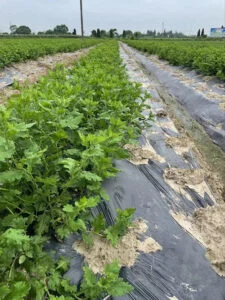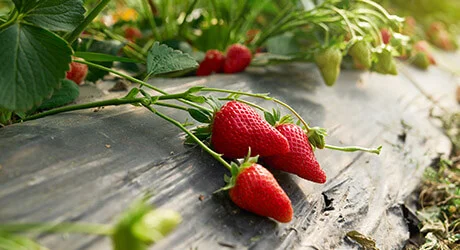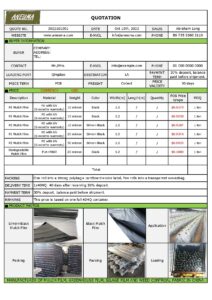Introduction
In the world of modern agriculture, mulch films have become an essential tool for enhancing crop yields, conserving water, and controlling weeds. These thin plastic sheets offer a range of benefits, but their widespread use has also led to concerns about environmental impact and waste management. To ensure the sustainability of agriculture and minimize the ecological footprint, it’s crucial for growers to adopt proper mulch film recycling and waste management practices. In this article, we’ll explore the importance of mulch film recycling, the challenges it presents, and actionable steps growers can take to make the most of this valuable agricultural tool while minimizing its negative consequences.

The Benefits of Mulch Films
Mulch films have revolutionized modern agriculture by providing a protective layer over the soil. This layer offers a multitude of benefits, including:
- Weed Suppression: Mulch films effectively block sunlight, preventing weed growth and reducing competition for essential nutrients.
- Moisture Retention: By reducing water evaporation, mulch films help maintain soil moisture levels, decreasing the need for excessive irrigation.
- Temperature Regulation: Mulch films moderate soil temperatures, creating an optimal environment for plant growth and root development.
- Enhanced Crop Yields: The combination of reduced weed pressure, efficient water use, and controlled temperatures often results in increased crop yields and improved quality.

The Challenge of Mulch Film Waste
While mulch films contribute significantly to agricultural productivity, their disposal poses a challenge. Traditional mulch films are made from non-biodegradable plastics, which can accumulate in soil, harming ecosystems and wildlife. Inadequate waste management can lead to unsightly landscapes, soil contamination, and long-lasting environmental damage.

Recycling Mulch Films: A Sustainable Solution
Recycling mulch films can mitigate the negative impacts associated with their disposal. Here’s how growers can make better use of mulch films through recycling and responsible waste management:
- Choose Recyclable Films: Opt for mulch films labeled as recyclable or made from biodegradable materials. These options break down naturally over time, reducing the need for extensive clean-up.
- Collection and Separation: After the growing season, gather used mulch films and segregate them from other plastic waste. Proper separation ensures the materials are suitable for recycling.
- Cleanliness Matters: Thoroughly clean and remove any residual plant matter from the mulch films before recycling. Clean materials are easier to process and yield higher-quality recycled products.
- Collaborate with Recycling Facilities: Work closely with local recycling centers or facilities that specialize in plastic recycling. These centers have the expertise and equipment to efficiently process mulch films.
- Innovative Recycling Techniques: Stay informed about advancements in recycling technology. Some innovative methods convert plastics into valuable resources like fuel or building materials.
- Education and Awareness: Educate farm workers and staff about the importance of mulch film recycling. Promote a culture of responsible waste management to ensure the success of recycling efforts.

Conclusion
Mulch films have transformed agriculture, offering numerous benefits for crop growth and yield. However, their improper disposal can lead to environmental harm. By embracing mulch film recycling and responsible waste management practices, growers can continue to enjoy the advantages of mulch films while minimizing their negative impact. As stewards of the land, it’s our responsibility to implement sustainable solutions that contribute to the well-being of both our crops and the environment. Through careful consideration and action, we can pave the way for a greener, more sustainable future for agriculture.

